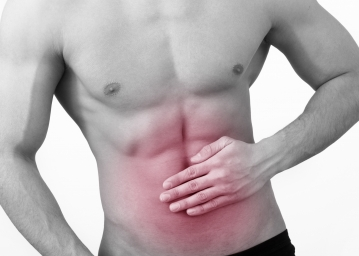
 Eliminating the Surprising Culprit Behind Stomach Concerns
Eliminating the Surprising Culprit Behind Stomach Concerns
By Carolyn Pierini, CLS (ASCP), CNC
High levels of stomach acid are blamed for nearly every midsection complaint. Yet, low stomach acid or hypochlorhydria is far more likely to be the problem. The stomach takes a hard hit with our modern-day lifestyles and when it sends a distress signal it is often quickly and profitably silenced. Relieving a symptom without addressing a cause often has dire consequences for the entire rest of the body over a matter of time. Proper stomach function is crucial because if this aspect is impaired, then everything below it is going to be compromised in a progressive and substantial manner. The stomach has become primary for evaluating gastrointestinal function.
Digestive Function
Proper digestion begins in the mouth in a relaxed mealtime setting with enzyme-rich salivary gland secretions and a reasonable amount of real food that is refinely chewed to increase surface area for digestion (the “Stomach 4R’s”). Swallowed food is then propelled through the esophagus to the LES (lower esophageal sphincter) valve which opens, allowing food into the stomach.
The stomach is extended as it fills with food and digestive juices begin to be released from specialized cells in the stomach’s lining. The gastric secretions, including hydrochloric acid (HCL) and the enzyme, pepsin, are released at exact times in a coordinated effort to create liquid “chyme.” This strongly acidic milieu reduces protein and cleaves nutrients like minerals and B12 from food in preparation for further digestion and absorption in the small intestine. In the stomach, the adequacy of HCL is critical for the destruction of potentially dangerous microorganisms from food and the environment.
Next, the partially digested chyme that is entering the small intestine must be acidic enough (pH 0.8-2) to stimulate the release of the hormones Secretin and Cholecystokinin (CCK). These two hormones enter the bloodstream and act on the pancreas to release digestive enzymes and bicarbonate-rich pancreatic juice.
Additionally, CCK stimulates the contraction of the gallbladder to release bile into the duodenum. Bile contains bile acids that emulsify fats into small globules for further digestion by pancreatic lipase. These alkalizing secretions neutralize the chyme creating a new environment (pH 8) that allows for continued digestion and eventual absorption. The proper digestion of proteins is critical for the release of amino acids, which are used by the genes to replenish and regenerate the body.
If the chyme is not sufficiently acidified by HCL, primary digestion in the stomach and secondary digestion in the small intestine will be compromised. Furthermore, if the HCL trigger is not there for the alkalization of the small intestine, the pH of the rest of the digestive tract is disrupted, resulting in a multitude of potential health problems.
Common Digestive Problems
Approximate pH of a Healthy GI Tract
Many people today believe that their indigestion, heartburn, bloating, belching, gas, gastroesophageal reflux disease (GERD), etc. are caused by excess stomach acid. However, symptoms of low HCL are similar to those of excess HCL and are frequently mistaken for excess acid. HCL is a natural component of the stomach and most nutrition-oriented physicians believe that lack of acid, not excess, is the true culprit in indigestion.1 HCL production is not easy. The parietal cells of the stomach need to make enough HCL to create a pH of less than 1 in the gastric fluid while right across the stomach membrane the blood pH is just over 7. It takes enormous amounts of cellular energy (ATP) for the membrane pumps to maintain this gradient.2 Along with a healthy stomach mucosal lining, HCL production requires proper hydration, good hormone balance, and adequate B vitamins and zinc. Furthermore, studies have shown that as we age there is a loss of HCL production from acid-producing cells.3-4 Often what people may experience when they feel the “burn” of reflux is any amount of stomach acid, not necessarily “excess” amounts of acid, contacting the delicate tissue of the esophagus where there is no protective mucus layer such as that found in the stomach. The acid is reaching this area because the LES valve that separates the stomach from the esophagus is not functioning properly. Surveys show that most people do use antacids, whether over-the-counter or prescribed, for symptoms of indigestion.5 The pain is relieved, and damage to the esophagus is reduced, but the underlying problems are not addressed when a digestive complaint is remedied with drugs that virtually eliminate acid from the stomach. Many physicians will argue that without proper levels of HCL, putrefaction of proteins and fermentation of carbohydrates occurs in the stomach resulting in by-products that irritate the lining and may contribute to gastric reflux. According to The Textbook of Natural Medicine, reflux or heartburn, as it is described, is most often caused by overeating (excess distention) and not excessive acid production. To quote Dr. David Brownstein, MD, “My clinical experience has been clear: Many suffering from GERD have low stomach acid production and a trial of HCL can improve the functioning of the LES.”6 The tone of the LES valve may also be affected by:
- Medications (aspirin, NSAIDS, others)
- Obesity
- Smoking
- Caffeine, coffee, black tea
- Alcohol
- Chocolate/acidic or spicy foods
- Carbonated drinks/fruit juice
- Refined/processed carbohydrates
- Lack of dietary fiber
- Sugar
- Trans fats/fried foods/rancidity
- Gluten in grains and as food additive
- Food sensitivities/allergies
- Dehydration
- Hiatal hernia (commonly undetected)
- Mint
- Pregnancy
- Stress
Eliminating processed carbohydrates and sugars in favor of more protein and non-starchy vegetables can be very helpful in eliminating acid reflux.7
| TABLE 1: Conditions Associated with Hypochlorhydria (Low stomach acid) | |
|---|---|
|
In his book, Why Stomach Acid is Good for You, Dr. Jonathan V. Wright, MD, who has tested thousands of patients using the Heidelberg Gastric Analysis (gold standard for assessing HCL adequacy), finds that heartburn is almost always associated with too little HCL, not too much. He writes that historically researchers find that “hypochlorhydria increases with age from a low of about 4 percent at age twenty to as much as 75 percent after age sixty.”8 Gastritis, which is inflammation of the stomach mucosal lining, is often initiated by low HCL. Mild to chronic gastritis is exceedingly common in the population as a whole, especially in the middle to later years of life9 and eventually leads to mucosal atrophy with little to no HCL production (achlorhydria). Low HCL results in undigested food particles, which may become antigenic contributing to a leaky gut, food sensitivities and autoimmunity. For conditions associated with Hypochlorhydria see Table 1.
The question at this point may be why then are we so HCL deficient? Poor nutrition, excessive food/drink intake, dehydration, alcohol, prescription drug and aspirin use, infection, food sensitivities, salt-free diets and chronic stress are but some of the answers. Of course, acid-suppressing drugs are a major reason. They have been associated with a 300 percent increase in the incidence of pneumonia,10 an increased risk for hip fracture,11 interstitial nephritis12 and the risk of bacterial overgrowth.13-14 Some interfere with detoxification (p450 enzymes), leaving the body vulnerable to pathology. All acid-lowering drugs typically raise the gastric pH above 3.5, reducing mineral absorption (i.e. zinc) and thus further increasing the risk of infection.15 By inhibiting protein breakdown, antacids have been shown to cause food allergies.16 The valid use, misuse and overuse of these drugs is not without consequence.
| TABLE 2: Common Signs/Symptoms of Hypochlorhydria | |
|---|---|
|
HCL secretion is the principle line of defense against infections of the GI tract. Chronic infection in the stomach is a major source of systemic inflammation, the root of metabolic dysfunction. Hypochlorhydria alone or secondary to acid-suppression promotes the growth of Helicobacter pylori (H. pylori), the causative bacteria in many ulcers and gastritis. H. pylori can further lower HCL allowing for colonization by other organisms.17 Approximately 50 percent of people over age 50 test positive for H. pylori, along with 70 percent of patients with gastric ulcers, and 90 to 100 percent of patients with duodenal ulcers.18 This infection is linked to stomach cancer as gastric carcinoma and adenocarcinoma.19-20 Oxidative damage appears to be the mechanism used by H. pylori in destroying the gastric mucosa.21 Taking antioxidants such as vitamins C and E and keeping the stomach acidic with supplemental HCL are protective factors against H. pylori.22-24
Newly Reformulated GastricAid
Newly reformulated GastricAid® contains an effective level of HCL bound to Betaine, which also supports bile-release, methylation and detoxification. Pepsin is added to further support protein digestion, while B1, B6, and zinc support HCL production. Vitamin U, the active ingredient in cabbage that heals ulcers, and Gamma oryzanol nurture the stomach mucosa. Fucoidin can prevent H. pylori from adhering to the stomach cells and inhibits colonization by other microorganisms.25-26 GastricAid is a novel and even more comprehensive gastric support product.
Most people can easily begin using supplemental HCL. However, caution must be used by those with mild to serious gastritis as they first need to allow the stomach lining to heal for several weeks prior to beginning a trial with HCL. Medications can weaken the stomach lining to the point that it cannot tolerate HCL even when it is really needed. Consider natural treatments for inflammation. Other products such as CeaseFire®, GI Cell Support, Lactoferrin, BioPRO™ and Lectin Lock™ may provide support for clearing infection and speeding recovery of the gastric mucosa. Naturally, providing the basic nutrient support for the stomach with a multivitamin and a source of omega fatty acids is recommended. By following the above steps, drinking pure water between meals and making the necessary diet and lifestyle changes, these folks should eventually be ready to use and benefit from HCL supplementation.
It is very important to note that although taking a digestive enzymes supplement alone may improve digestion and relieve symptoms, normal digestion is not restored. Enzymes do not have the same effect on protein and mineral absorption; they do not provide a microbial acid barrier and they do not support the acid/alkaline phases of normal digestion as HCL and pepsin do.
Conclusion
Remember that a symptom is your body telling you its needs. The goal is to correct digestive function to restore health, energy, eating pleasure and a longer life. Adequate HCL is important for initiating protein digestion and cleaving nutrients from food, stimulating the release of bile and digestive enzymes, and assuring a protective acidic barrier against threatening microorganisms. The newly reformulated GastricAid can help accomplish each of these goals.


